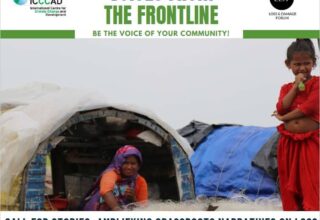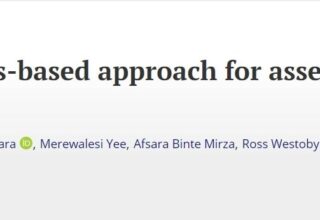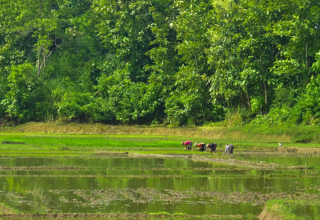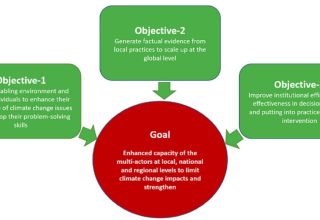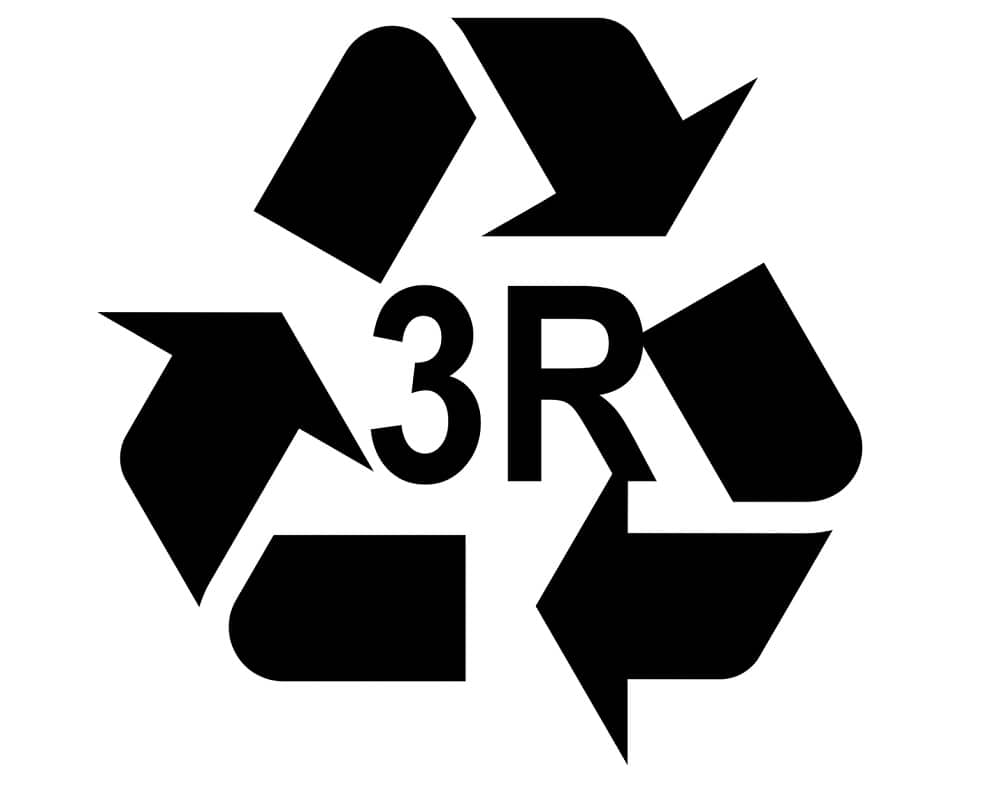
Does our consumption behaviour have any impact on climate change? Yes, it has – it is driving climate change. Now the million-dollar question is how. When we waste food while dining at our home, we not only waste food but also waste energy and other interrelated elements like water it needs to grow, resources required for harvesting, transportation and processing.
Besides, when the food rots, it produces greenhouse gas like methane. For instance, the Matuail landfill nearby Dhaka is a major source of methane produced from the dumping of household waste.
Food consumption is not the only source of producing unnecessary waste, there are ample cases where we are producing similar waste without knowing or without caring for the environment and its impact on climate change.
Should there be less waste, we would have produced a much lower quantity of methane. While we can reduce methane emission by improving our waste management system, we have our share of responsibility in reducing our consumption, reusing a product and recycling the waste.
Here comes the concept of circular economy (CE) that is one of the latest economic models that aim to halt and minimize the current production and consumption trend based on “linear economy.” The circular economy (CE) is built on the basis of 3Rs — reduce, reuse, recycle.
According to Ellen McArthur Foundation, CE is established on the idea of creating something brand new out of waste and pollution; keeping the products and materials in use as long as possible, and regenerating ecosystems and biodiversity.
The attributes of CE have the potential to help in tackling climate change through waste management; reduction in air pollution; creating low carbon and resource-efficient economy; and practicing regenerative agricultural practices. Even though the progress of CE solutions needs appropriate technology, finance, business models, and policies, it is clear that behavioural alteration and consumer embracement are vital aspects for its effectual implementation. This can be instigated through education which can define the interdependence of human life and the natural environment.
The active engagement of the children and young people from the primary to higher secondary schools is vital for bringing transformation in thinking processes through raising awareness on sustainability which will facilitate the execution of circular behaviours.
The behaviours include actions such as recycling waste, reusing existing material, and renting out current belongings. This will have multifaceted and long-term benefits ranging from becoming an informed and motivated citizen for protecting the environment to reducing personal carbon-footprint and helping to tackle climate change from a young age.
In Bangladesh, there are more than 100,000 non-English medium and English medium primary schools operating. Hence, there is ample opportunity for raising awareness and influencing the future consumption behaviour of the children. The incorporation of a simplified concept of circular economy in the textbooks starting at the primary level and upward can be an ideal entry point for realizing this objective.
It will require the phenomenon where teaching methods move away from traditional lecture-focused and discipline-centered methods and take into account a participatory and multi-disciplinary system of thinking which can support students in learning about sustainable production and consumption.
For instance, it will be crucial to make children aware of the biodegradable and nonbiodegradable qualities of paper, plastic and other materials; using energy-saving electrical appliances; minimizing food waste by converting them to fertilizers; and sorting out waste and management of resources like water.
In urban areas of Bangladesh, the annual per capita plastic consumption rose from 3kg in 2005 to 9kg in 2020 (World Bank, 2021). It is not surprising that Dhaka’s yearly per capita consumption of plastic is 22.5 kg which is greater than the national average. Additionally, COVID-19 endemic has exacerbated the waste management issue for plastic. On the other hand, Dhaka has been stated as the world’s most polluted city through the air quality index (AQI) in 2022. Thus, it is crucial more than ever to adopt the circular economy’s principles in Bangladesh to safeguard future generations’ existence and tackle climate change swiftly.
However, enhanced capacity-building is required for teachers and tutors in Bangladesh, as they are the key players in convincing the students in creating a circular and sustainable society. The training sessions for teachers can be assisted through peer-to-peer educational programs, collaborative projects, innovative and practical lab sessions to embrace circular systems. The modules and courses have to align with local traditions and be easily translated into Bengali for non-English medium schools.
The Ministries of Education (MoE); Environment, Forest and Climate Change (MoEFCC) and Primary and Mass Education (MoPME) may conduct a feasibility study on assessing the possible impact of introducing the concept of the circular in conserving the environment as well as contribute our battle against the impact of climate change.
These ministries in collaboration with other stakeholders can have consultations before establishing policies that resonate with the core values of the circular economy. This process will help formulate national policies holistically by valuing the local and traditional knowledge in rural, urban and remote areas, and be receptive to the changes in the market.
National level policies on climate change such as the National Adaptation Plan (underway), Mujib Prosperity Plan, Bangladesh Climate Change Strategy Action Plan 2009 can play a vital role in facilitating the mainstreaming of the circular economy in the education system. This can most likely be a catalyst for achieving several SDGs through new and greener value chains, green skills, employment, and innovative products while simultaneously addressing social and environmental drawbacks.
Originally this article was published on February 15, 2022 at Dhaka Tribune.
Afsara Binte Mirza is a Junior Research Officer at ICCCAD and Meer Ahsan Habib is a Communications Consultant working on climate change at UNDP. The views expressed in this opinion are those of the authors and do not purport to reflect the opinions or views of the ICCCAD or UNDP.

